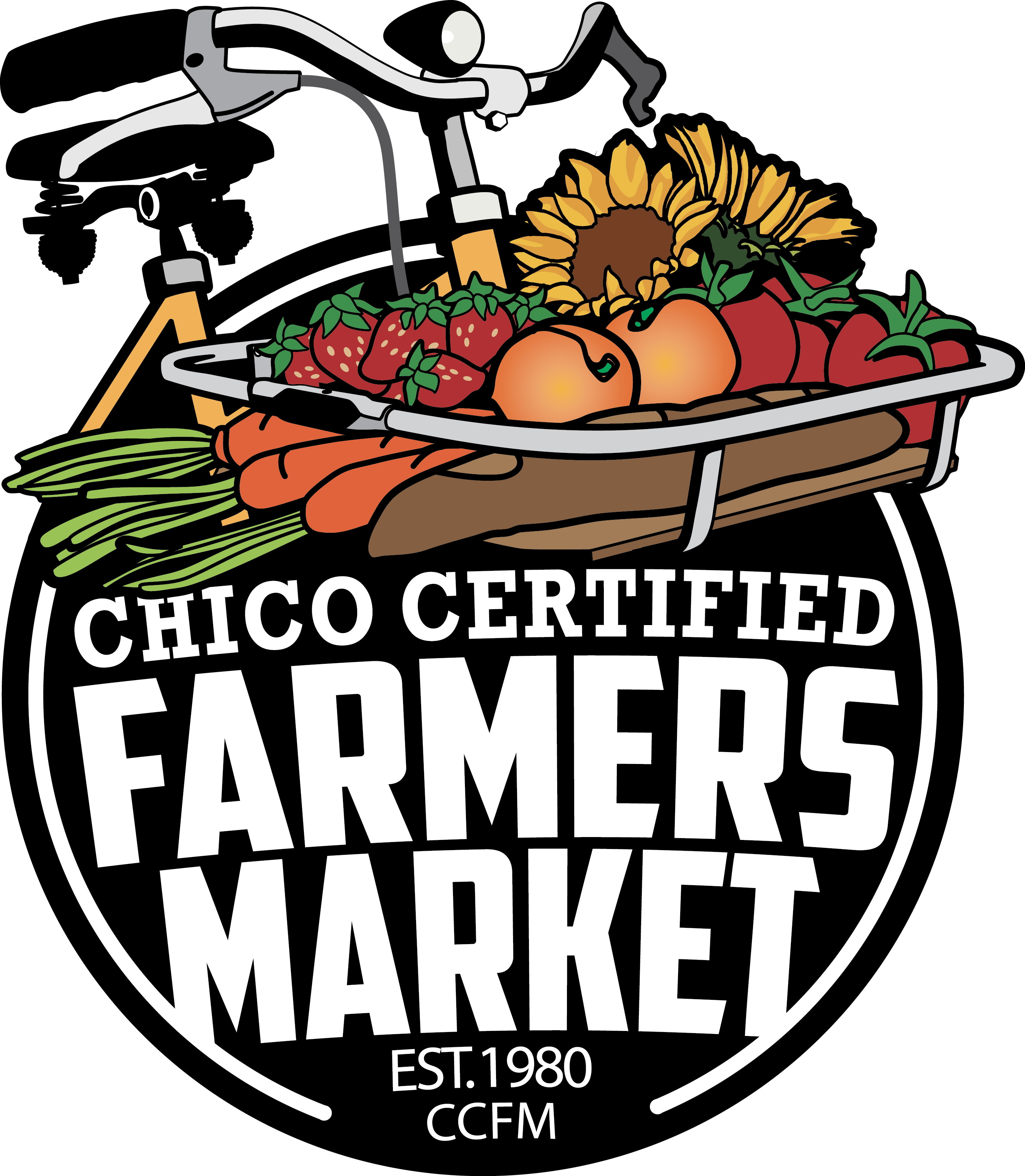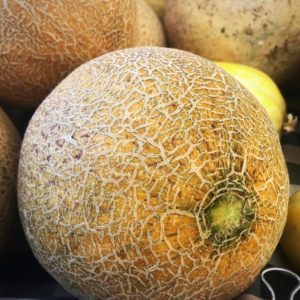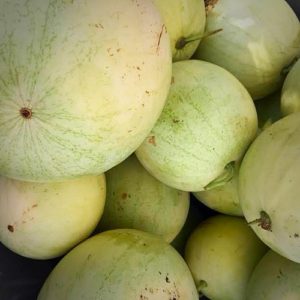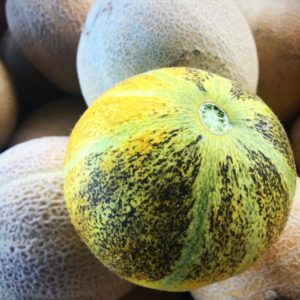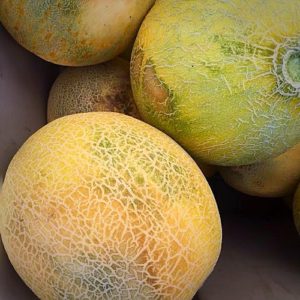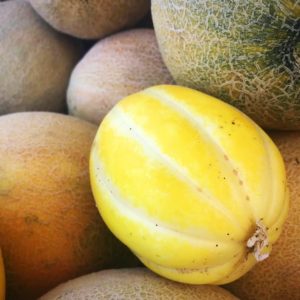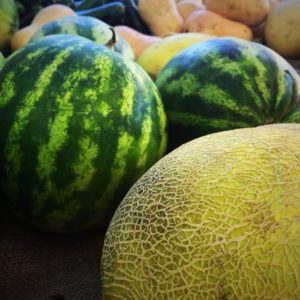Okay, maybe not millions, but there are quite a few varieties, each with its own unique flavor and appeal. And nothing says summer quite like a cool, sweet, and juicy slice of melon.
Melons are part of the same family as cucumbers and squash, which are all members of the gourd family. They need lots of heat and sunshine to grow, and are at their best in summer when they are sweetest and most nutrient rich. Indeed they are tasty, but they’re also great for you! Melons are low in sodium, saturated fat, and cholesterol. They’re a good source of dietary fiber, vitamin K, potassium, and a very good source of vitamin C.
Read on for some fun facts, recipes, and ideas on how to get the most out of your melon. There are a menagerie of melons awaiting for you to discover this Saturday at the Chico Certified Farmers’ Market, so come down this Saturday, support your local farmers, and go a little melon crazy!
A Short, Easy Guide
How to Choose
While melons often have smooth skin, they can also be reticulated, meaning they are covered with grey, raised netting on the rind. For netted melons, like cantaloupe, choose ones that smell sweet and give slightly to pressure. Smooth-skinned melons such as honeydew do not give off their aroma until they’ve been cut open. Look for ones that are heavy for their size and give to pressure at the stem end.
How to Store
Ripe melons can be kept at room temperature for several days. Store cut melon in the refrigerator, wrapped tightly in plastic wrap or in a sealed container.
How to Prepare
Slice the melon in half and scoop out the seeds with a large spoon. Peel off the tough outer skin and cut as needed. Eat it right up as is, or make some delicious!
- e3129e73 40e5 4e8d 9d91 8466a5ef10d5
- e7b38c0b 5038 4133 bda6 30c809a8234b
- 59459a36 e0d9 4de4 bdf5 0e8d8275d8c3
- 92fc4187 ab67 46d9 9fa3 761d659538b4
Fun and Fast Melon Facts
- Originally from Africa, evidence of melons in Egypt – via seeds in tombs and wall painting – date it there at least 4,000 years back.
- Melons (Cucumis melo) are a different species entirely from watermelons (Citrullus lanatus).
- Melon is annual plant, which means that it finishes its life cycle in one year.
- Melons are symbol of fertility and vitality, but also of luxury because they were expensive and scarce in the past.
- Most melons do not ripen after they are picked, so once a cantaloupe is removed from the vine it will not sweeten any further – except honeydew melon which will continue to ripen after it’s picked.
- Almost all parts of melon (fruit, seed, leaves and roots) are used in traditional Chinese medicine.
- Early explorers used watermelons as canteens!
- Watermelon is aptly named as it is 92% water by weight.
- To pick the perfect watermelon, experts recommend that you flip it over to make sure that the underside has a nice, creamy yellow spot from sitting on the ground in order to ripen under the sun.
- Melons 3a23d1dc 8b68 40b1 8e25 5836790608b6
- Melons 89b6fe55 0361 43e1 8e85 1128197cf91e
